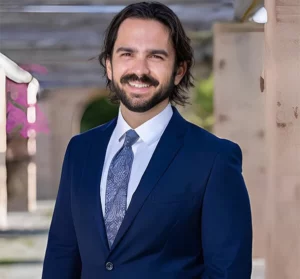Can You Sell a House During the Probate Process?

When a loved one passes away, leaving behind a house, settling their affairs can be overwhelming. One common question that arises is: Can the house be sold while it’s stuck in probate?
The simple answer is yes, in most cases, you can sell a home while it’s going through probate court proceedings. However, there are specific legal requirements and steps that need to be followed in order to properly list and sell the probate property.
Whether you’re an executor tasked with overseeing the distribution of assets or a beneficiary, you should understand the legal framework and practical considerations involved.
What Happens During Probate in Florida?
Probate is the legal process that occurs after someone passes away. Its purpose is to validate the deceased’s will (if one exists) and facilitate the orderly transfer of their assets to the rightful beneficiaries. This process is overseen by a probate court and typically involves the appointment of an executor (also known as a personal representative), who is the individual or institution responsible for managing the estate’s affairs.
In Florida, the probate process begins when the executor files a petition with the probate court in the county where the deceased lived. The court then appoints an executor (if one is not already named in the will) and grants the executor the legal authority to act on behalf of the estate.
During probate, the executor’s duties include identifying and valuing the deceased’s assets, paying outstanding debts and taxes, and distributing the remaining assets according to the will or Florida’s intestacy laws.
When Can a House Be Sold During Probate?
Can a house be sold during probate? The short answer is yes, but specific circumstances and procedures must be followed.
In general, selling a house during probate is allowed – and often necessary – in the following situations:
-
The will directs the sale of the property: If the deceased’s will explicitly instructs the executor to sell the house, the executor is legally bound to follow those instructions.
-
The estate lacks liquid assets: If the estate has insufficient cash or liquid assets to pay off debts, taxes, and other expenses, selling the house may be the only option to generate the necessary funds.
-
The beneficiaries agree to the sale: Even if the will does not explicitly mention selling the house, they may collectively decide that selling the property is in their best interest and in the best interest of the estate.
However, before any sale can occur, the executor must obtain approval from the probate court.
Obtaining Probate Court Approval
Selling a house during probate is not a decision that the executor can unilaterally make. The probate court must approve the sale, and the executor must follow a specific process to obtain that approval.
First, the executor must petition the probate court requesting permission to sell the property. This petition must include detailed information about the house, such as its appraised value, outstanding mortgages or liens, and the proposed sale price.
The petition must also justify the reasons for selling the house, such as those mentioned earlier (e.g., lack of liquid assets, beneficiary agreement, or the will’s instructions).
Once the petition is filed, the court will review the request, which may require additional information or documentation. If the court deems the sale to be in the best interests of the estate and the beneficiaries, it will approve the sale to proceed.
Responsibilities of the Executor
As the executor, you play a pivotal role in selling a house during probate. The executor’s responsibilities include:
-
Preparing the house for sale: This may involve decluttering, making necessary repairs, and obtaining professional appraisals to determine the property’s fair market value.
-
Selecting a real estate agent: Choosing a reputable and experienced real estate agent is crucial to ensuring a smooth and successful sale.
-
Marketing and negotiating: Working closely with the real estate agent, you’ll be responsible for marketing the property effectively and negotiating the best possible sale price on behalf of the estate.
-
Finalizing the sale: Once a buyer is found, you must coordinate with the probate court, the buyer’s representatives and any other relevant parties to complete the sale transaction. It is important to have an attorney involved with reviewing the sales contract to ensure that closing is contingent on the seller (the estate) obtaining court approval.
Throughout this process, executors must maintain meticulous records, as they will need to answer to the probate court and the beneficiaries for their actions.
Distributing Proceeds from the Sale
After the house is sold, the proceeds are distributed according to the deceased’s will or Florida’s intestacy laws.
The executor will ensure that the sale proceeds are allocated correctly among the beneficiaries after paying off any outstanding debts, taxes, and other expenses related to the estate.
In Florida, the assets from an estate are usually distributed as follows:
-
Payment of the costs of administering the estate (like executor fees or court costs)
-
Payment of funeral expenses
-
Payment of valid claims against the estate, including debts and taxes
-
Distribution of the remaining assets to the beneficiaries
It’s crucial to strictly follow the order of priority and to maintain detailed records of all distributions and payments made from the sale proceeds. Oftentimes, after closing on the sale of the house the sales proceeds will be deposited into a restricted depository (estate bank account) until the distributions described in numbers 1-4, above can be done.
Involving Beneficiaries in the Process
While the executor has the legal authority to manage the estate’s affairs, it’s generally advisable to keep the beneficiaries informed and involved throughout selling the house during probate.
Open communication and transparency can help prevent misunderstandings and potential conflicts among beneficiaries. Regular updates on the sale progress, copies of relevant documents, and opportunities for input can go a long way in fostering trust and cooperation.
In cases where disagreements or disputes arise among beneficiaries, it may be necessary to seek guidance or mediation from the probate court or legal professionals. The goal should always be to resolve conflicts by coming to an agreement that upholds the deceased’s wishes while protecting the estate’s and its beneficiaries’ best interests.
Alternatives to Selling During Probate
While selling a house during probate is often a practical and necessary step, there may be situations where retaining the property is ideal.
For example, if the house holds significant sentimental value for the beneficiaries or represents a valuable long-term investment opportunity, the beneficiaries may choose to keep the property and distribute it among themselves according to the terms of the will or Florida’s intestacy laws. If it is a protected homestead property (primary residence in Florida), then there are other considerations as well.
Another alternative to selling during probate is to transfer ownership of the house directly to a beneficiary. This can be done through the probate process, provided that the beneficiary can assume responsibility for the property, including any outstanding mortgages or liens.
In some cases, tools such as revocable living trusts can be used to avoid the probate process altogether, allowing for a smoother and more efficient transfer of assets, including real property.
However, carefully discuss these alternatives with a professional, such as an estate planning attorney, as each alternative will have its own unique tax and financial implications.
Frequently Asked Questions
Can the executor sell a house in probate without all beneficiaries’ approval in Florida?
In Florida, the executor generally needs approval from the probate court to sell a house during probate but doesn’t necessarily need approval from all beneficiaries. However, keeping beneficiaries informed and addressing any objections is advisable to avoid conflicts. Additionally, having the beneficiaries sign consents to the sale can help in shortening the amount of time it takes to obtain court approval.
How long does it take to sell a house in probate in Florida?
The timeframe for selling a house in probate in Florida can vary but typically takes approximately five months. Complex cases can take longer than a year. Factors like obtaining court approval, preparing the home for sale, finding a buyer, and distributions can extend the process.
Can a beneficiary buy a probate house in Florida?
Yes, in Florida, a beneficiary can potentially buy the probate house, provided they follow the proper procedures outlined by the probate court. The beneficiary would need to make an offer, get it approved by the court, and purchase the home at fair market value.
Honoring Your Loved One’s Legacy with Alexander Gil
Navigating the probate process and deciding whether to sell a house during this time can be emotionally charged. As your trusted guide, we provide you with the knowledge and support needed to make informed decisions that align with the deceased’s wishes and protect the interests of all parties involved.
We understand that every situation is unique, and there is no one-size-fits-all solution. That’s why we encourage you to contact our team at Alexander Gil, PLLC. Our lawyers are here to walk you through the probate process, address your concerns, and help you chart the best course of action for your unique circumstances.
Latest Reviews
C. U.
A. G.
M. R.
Y. H.
A. K.
